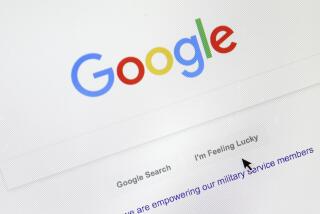What do Jesus, dragons have in common? They’re LinkedIn passwords
- Share via
Jesus and dragons don’t share much in common, but they do both happen to be among the top 30 passwords leaked from this week’s LinkedIn hacking. And that says a lot about the poor choice of passwords people are using.
In case you don’t know, LinkedIn was hacked this week and had 6.5 million passwords stolen and posted on the Web by a hacker seeking help cracking them. Among them, 165,000 were figured out.
Rapid7, a cyber security company, analyzed those 165,000 passwords and made an infographic of the 30 passwords that showed up most often.
The most common password was “link,” which is probably a reference to LinkedIn’s name and is a horrible choice. That’s like setting your Facebook password as “Face.”
“Link” was used by 941 accounts, but it wasn’t the only password related to the site. Others went with “work” or “job,” and 26 people used “career” as their password.
And for some reason, people really like to use curse words as their passwords when it comes to the social network for their career. At least three potty words show up in the top 30, and they’re just poor choices in general since they’re only four-letter words. But they aren’t the worst.
As expected, many people went with “1234” -- the second-highest choice -- “12345,” “123456” and, you guessed it, “1234567.” But in my opinion, the absolute worst password on the list was the word “the,” which showed up 143 times -- shameful.
In its infographic, Rapid7 offered some suggestions for what not to include in your passwords. Among the suggestions: Don’t make passwords related to the website it’s for, so if your password for Gmail is “Google,” you should really change that.
Avoid being “Count Dracula,” Rapid7 says, meaning stop using numbers in order for your passwords.
And also, don’t make your passwords about your loved ones, such as “ilovejen” or just “jen.” Many people use “ilove” to start their passwords, making yours easier to figure out, and if someone you know wants to get your password, your boyfriend or girlfriend’s name is probably where the invader will start.
Another suggestion we would offer is this: Don’t use the same password for every site. It’s good to mix it up, and many people have different levels of passwords -- like simple passwords for insignificant things like your Cheezburger account -- and difficult passwords for more important things, like your bank account.
And in case you’re wondering, 95 people used “Jesus” while 46 used “dragon.”
RELATED:
LinkedIn working with FBI to investigate hacking
Like LinkedIn, eHarmony is hacked; 1.5 million passwords stolen
LinkedIn says no account break-ins verified; phishers target users
Follow Salvador Rodriguez on Facebook, Twitter or Google+
More to Read
Inside the business of entertainment
The Wide Shot brings you news, analysis and insights on everything from streaming wars to production — and what it all means for the future.
You may occasionally receive promotional content from the Los Angeles Times.











